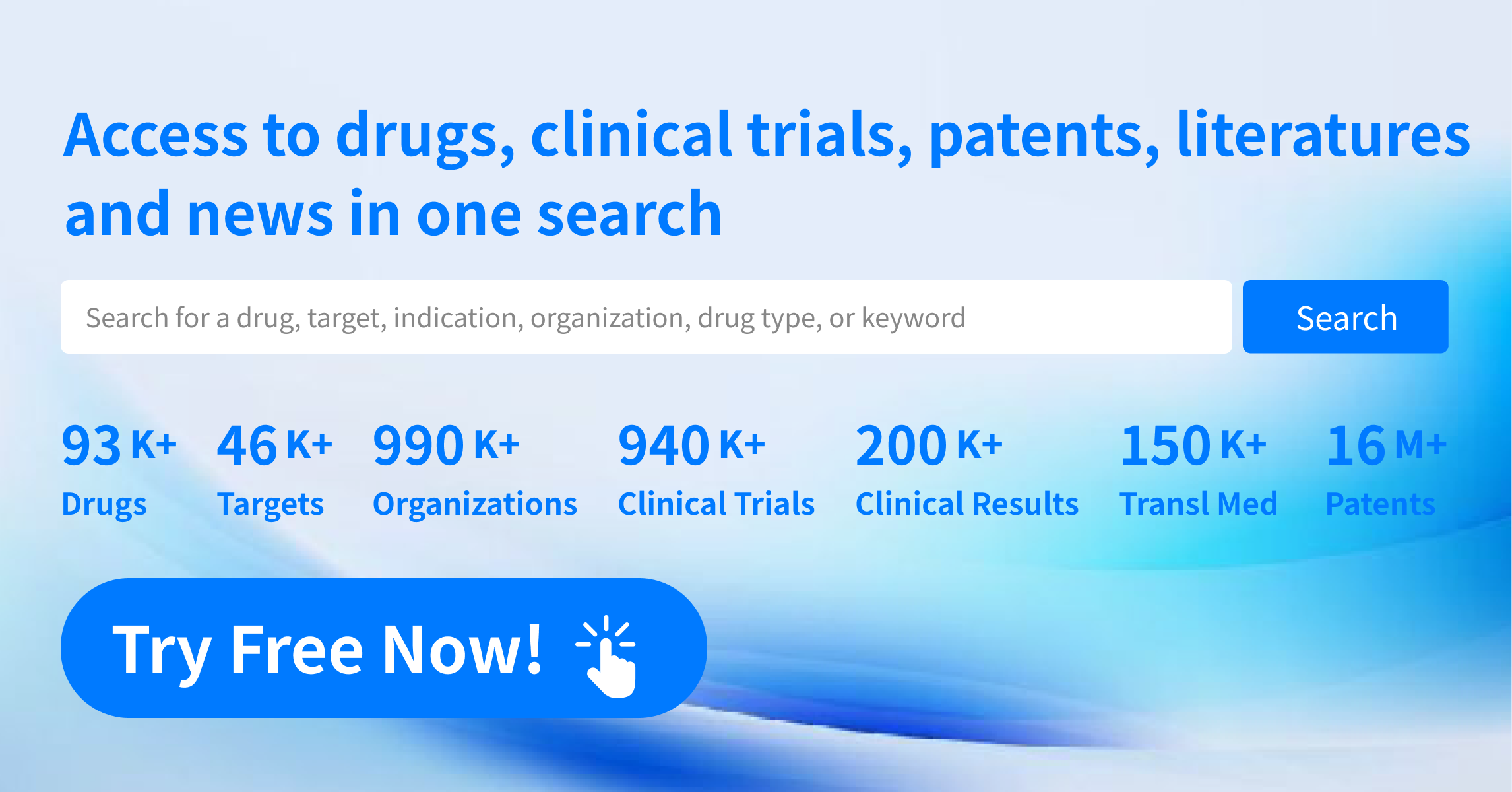Pharma Frontiers: Daily Digest of Global Pharmaceutical News – Aug 13
1.The market application for Joincare Pharmaceutical's anti-influenza drug TG-1000 capsule has been accepted
On August 12, the official website of CDE indicates that the market application for Joincare Pharmaceutical's anti-influenza drug TG-1000 capsule has been accepted. In April, Joincare announced that the multi-center phase III clinical trial of TG-1000 capsules for the treatment of uncomplicated chronic type A and B influenza acute infections in people aged 12 and over had reached the primary endpoint and they will communicate with the Drug Evaluation Center of the National Medical Products Administration (CDE) about the market application for TG-1000 capsules for treating influenza, to advance the listing process of TG-1000 capsules. TG-1000 is a first class innovative anti-influenza drug and a novel cap-dependent endonuclease inhibitor. Early research data showed that TG-1000 has a quick onset of action, a long time of viral inhibition, good tolerance is unaffected by food intake and can effectively inhibit both Type A and B influenza virus. In September 2023, the Phase III clinical trial (n=752) for TG-1000 capsules in the treatment of influenza began. The study is a multi-center, randomized, double-blind clinical trial, with the primary endpoint being the time to alleviate all flu symptoms within 15 days of treatment. The preliminary statistical analysis results showed that the median time for all flu symptoms to be relieved was 60.9 hours in the TG-1000 group and 87.9 hours in the placebo group, achieving the primary efficacy point and having a statistical difference (P <0.0001). In terms of safety, the incidence of Adverse Events (AE) in the TG-1000 group was similar to the placebo group, with no deaths or serious adverse reactions related to the drug.
2.Junshi Biosciences submits the 12th Market Application for PD-1 Monad Antibody Toripalimab Injection
On August 12th, the CDE official website showed that Junshi Biosciences has submitted a new market application for Toripalimab injection and has been accepted. Toripalimab is a anti-PD-1 monad antibody that has already been approved for 10 indications in China, and has submitted an application for hepatocellular carcinoma in July this year. The new indication for this drug application might be first-line treatment for unresectable or metastatic melanoma. Toripalimab injection is a monoclonal antibody drug that targets PD-1. This drug has so far conducted over 40 clinical trials covering over 15 indications worldwide, including China, the USA, Southeast Asia and Europe, all launched by Junshi Biosciences. The key registered clinical trials that researchers are conducting or have completed evaluate the safety and efficacy of Toripalimab in various tumor types, including lung cancer, nasopharyngeal carcinoma, esophageal cancer, stomach cancer, bladder cancer, breast cancer, liver cancer, kidney cancer and skin cancer. In China, Toripalimab has obtained NMPA approval for 10 indications, which involves melanoma, nasopharyngeal carcinoma, urothelial carcinoma, esophageal squamous cell carcinoma, non-squamous non-small cell lung cancer, stage IIIA-IIIB non-small cell lung cancer, renal cell carcinoma, extensive stage small cell lung cancer, and triple-negative breast cancer. Abroad, the drug was approved by the U.S. FDA for the treatment of nasopharyngeal carcinoma in October 2023. On July 26th this year, Toripalimab also received a positive opinion from the European Medicines Agency (EMA) Committee for Medicinal Products for Human Use (CHMP), recommending its approval for two indications for the treatment of nasopharyngeal carcinoma and esophageal squamous cell carcinoma. Based on the progress of the clinical trials being carried out on Toripalimab, it is speculated that the new indication for this application may be: first-line treatment for unresectable or metastatic melanoma. Previously, Toripalimab was approved in December 2018 for second-line treatment for melanoma.
3.Cosunter Pharmaceutical's innovative Hepatitis B treatment drug, GST-HG141, achieves phase II study objectives
On August 12, Cosunter Pharmaceutical issued an announcement stating that its innovative Hepatitis B treatment drug, GST-HG141, has completed a phase II clinical trial for chronic Hepatitis B with low viremia. A complete statistical analysis report is expected to be released soon. The Hepatitis B core protein inhibitor, GST-HG141, is a new drug targeting an entirely new Hepatitis B virus, and it is globally recognized as a potential First-in-class project. GST-HG141 can inhibit the uncoating and assembly of the Hepatitis B virus (HBV) capsid, a critical step towards the clinical cure of Hepatitis B. It specifically targets the virus, posing less risk to host targets, and is highly safe.
The research results show that GST-HG141 offers excellent safety and pharmacological characteristics for patients with low viremia. The positive results from its phase II clinical trial support the continuation of a phase III confirmatory clinical trial for GST-HG141. The relevant research data will also be submitted to the CDE for registration clinical communication in the near future. A total of 90 patients were enrolled in the phase II clinical trial of GST-HG141 for low viremia. Different doses of GST-HG141 all demonstrated noticeable HBV DNA suppression effects. After 24 weeks of continuous treatment with a combination of GST-HG141 and nucleoside analogues, the proportion of patients in high and low dose groups with HBV DNA below the lower limit of detection reached 81.5% and 84.0% respectively, far exceeding the effects of monotherapy with nucleoside analogues (32.1%).
Moreover, the therapeutic effect was stable without fluctuations. Reductions in HBV DNA and pgRNA exceeded 1 log10, further validating the unique role of GST-HG141 in HBV replication and cccDNA exhaustion. The clinical study achieved its preset objectives with excellent data.
4.Amgen's collaboration with AstraZeneca to develop COPD therapy receives FDA breakthrough therapy designation!
Recently, Amgen announced in its Q2 2024 financial report that their "first-in-class" monoclonal antibody Tezspire (tezepelumab) which is jointly developed with AstraZeneca, has been granted a Breakthrough Therapy Designation by the FDA as an add-on maintenance treatment for moderate to very severe Chronic Obstructive Pulmonary Disease (COPD) patients with an eosinophilic phenotype. The two companies are planning to initiate Phase 3 clinical trials in COPD patients. The designation was granted based on the results of the Phase 2a COURSE clinical trial. Previously released data showed that tezepelumab can reduce the occurrence of moderate or severe exacerbation of COPD. At week 52, compared to placebo, tezepelumab treatment resulted in a numerical reduction in the rate of moderate or severe acute exacerbations of COPD by 17% annually, although it was not statistically significant (90% CI: -6, 36; one-sided p-value = 0.1042). However, importantly, this proof-of-concept study demonstrated that in patients with a blood eosinophil count (BEC) ≥150 cells/µL, tezepelumab compared to placebo numerically reduced the incidence of moderate or severe exacerbations of COPD by 37%. The study showed that approximately 65% of COPD patients have a BEC ≥150 cells/μL. In patients with a BEC ≥300 cells/μL, tezepelumab resulted in a numerical reduction in the incidence of moderate or severe exacerbations of COPD by 46%. Tezepelumab is a "first-in-class" humanised, monoclonal antibody targeting the thymic stromal lymphopoietin (TSLP). TSLP is an epithelial cell-derived cytokine located at the top of many inflammatory cascades, triggering an exaggerated immune response to allergic, eosinophilic and other types of airway inflammation. The therapy was approved by the US FDA in December 2021 as an add-on maintenance treatment for severe asthma in patients aged 12 and older.
5.The gene therapy VGR-R01 from Tianze Yuntai is proposed to be included in the breakthrough treatment category
Recently, the official website of the Center for Drug Evaluation (CDE) of the National Medical Products Administration (NMPA) of China showed that the biotherapeutic product VGR-R01 applied by Tianze Yuntai is proposed to be included in the breakthrough treatment category for the treatment of Bietti Crystalline Dystrophy (BCD). Public information shows that VGR-R01 is the world's first gene therapy product approved for clinical trials for BCD caused by mutations in the CYP4V2 gene. Clinical data shows that subretinal injection of VGR-R01 can significantly improve patients' visual acuity or enhance functional vision in dim environments, achieving positive effects in correcting visual impairment or protecting residual visual function, potentially making BCD no longer untreatable. CYP4V2 is an ω-hydroxylase gene in the human body that plays a role in various metabolic pathways. The CYP4V2 protein is highly expressed in retinal pigment epithelial cells, has fatty acid hydroxylase activity, and is related to lipid metabolism. VGR-R01 corrects the fatty acid metabolic disorder in the patient's retina, preventing or improving the structural and functional damage of retinal pigment epithelial cells, photoreceptor cells and choroid, thereby correcting visual impairment and delaying visual deterioration. In terms of administration, VGR-R01 is injected into the subretinal space and is expected to have a corresponding long-term therapeutic effect with only one injection. In August 2024, the first domestically developed gene therapy drug VGN-R09b completed the first case of drug administration in the registration study, used for the treatment of aromatic L-amino acid decarboxylase deficiency. VGN-R09b has completed administration in six cases in previous early exploratory studies, with good medication safety and postoperative recovery. Improved brain imaging and brain AADC enzyme activity can be seen four weeks after medication, and patients' related clinical symptoms have progressively improved, with motor function and intellectual level gradually recovering, and some patients are currently able to complete important milestones in movement such as lifting their heads and sitting independently.
6.Geneleap Biotech gets the green light to develop Class 1 Innovative Nucleic Acid Therapy!
On August 12, the Drug Evaluation Center (CDE) of China's National Medical Products Administration (NMPA) announced on the official website that LY01620, a Class I innovative drug applied by Geneleap Biotech, was approved for clinical trials. The drug aims to treat high-grade squamous intraepithelial lesions of the cervix related to HPV16. According to the CDE official website, this is the first product from the company approved for Investigational New Drug (IND) trial.
Geneleap Biotech, a subsidiary of the Luye Pharma Group, specializes in developing gene drugs for cancer and severe infectious diseases, including mRNA and oligonucleotides. Founded in July 2020, it possesses an RNA (vaccine) drug development and LNP delivery technology platform, providing more advanced and effective clinical treatments for infectious diseases, genetic diseases, intractable tumors, etc.
In June 2021, the company presented a preclinical study at the Spring 2021 Meeting of the American Chemical Society (ACS). The study showcased a new synthesis technology for tri-antennary N-acetylgalactosamine (GalNAc) and assessment of the delivery and therapeutic effect of GalNAc-antisense oligonucleotide conjugates in mice. The results indicated that the new tri-antennary GalNAc conjugated to ApoB antisense gapmer significantly reduced the expression of ApoB protein in mouse plasma after subcutaneous injection. The durability and knockdown efficiency of the new GalNAc were similar or superior to the standard tri-antennary GalNAc currently used in clinical trials. Researchers believe that the new GalNAc synthesized by Geneleap Biotech is more convenient and cost-effective. Compared to traditional GalNAc, the new GalNAc demonstrated similar effects in liver delivery in rodents and can be used for the clinical development of ASO, siRNA, and other nucleic acid drugs to treat liver diseases.
How to obtain the latest research advancements in the field of biopharmaceuticals?
In the Synapse database, you can keep abreast of the latest research and development advances in drugs, targets, indications, organizations, etc., anywhere and anytime, on a daily or weekly basis. Click on the image below to embark on a brand new journey of drug discovery!




